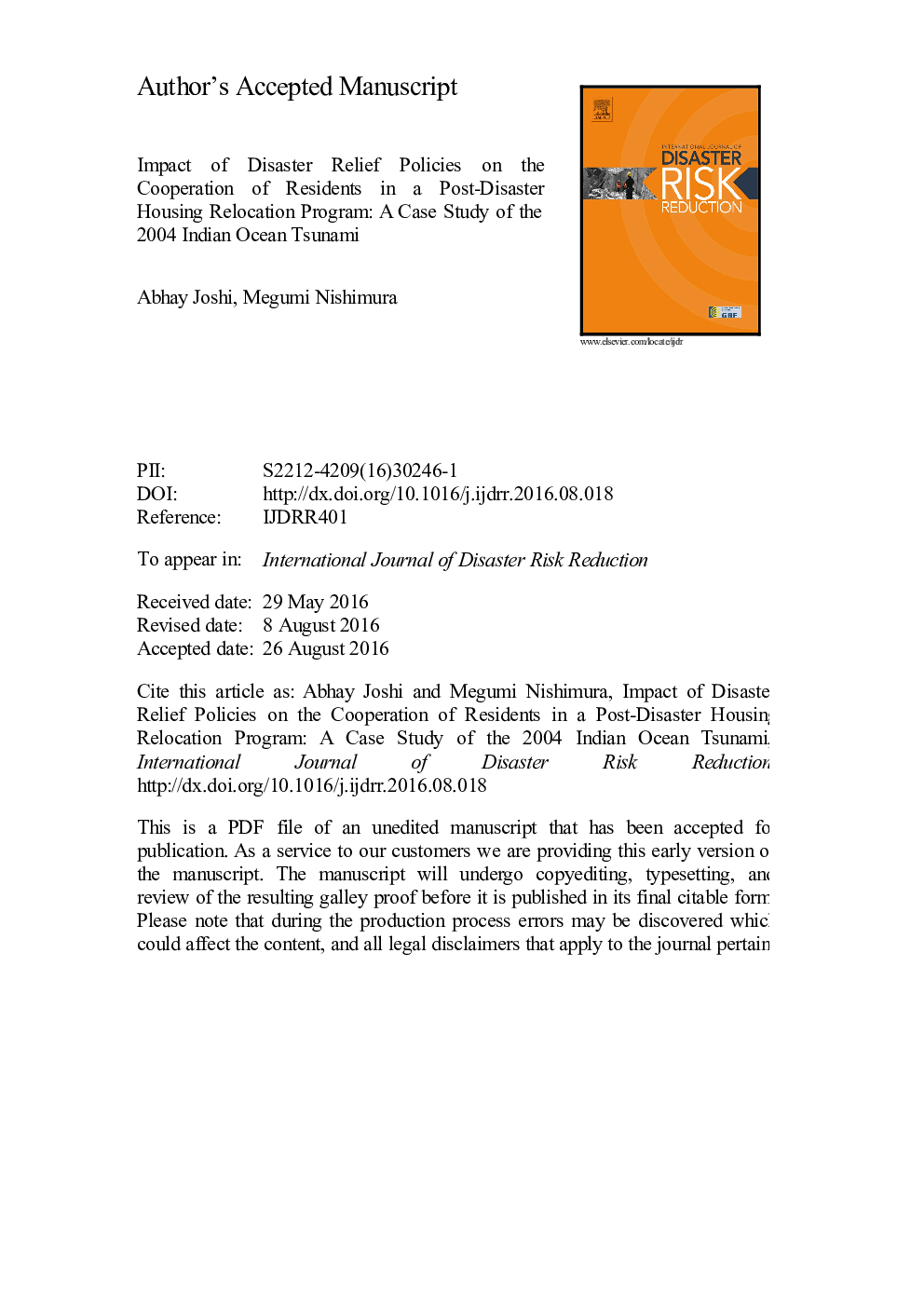| Article ID | Journal | Published Year | Pages | File Type |
|---|---|---|---|---|
| 7472406 | International Journal of Disaster Risk Reduction | 2016 | 13 Pages |
Abstract
Relocating disaster-affected people to disaster-proof areas will never be complete without the cooperation of the disaster-affected people; thus, it is one of the most challenging jobs for the government. This paper focuses on the fact that the aid donor-recipient relationship between the government and the disaster-affected people has already begun before the government offers the disaster-affected people a housing relocation program. The purpose of this paper is to estimate the impact of early-stage disaster-relief provisions (material aid, financial aid) on the cooperative behavior of disaster-affected people in a late-stage housing relocation program. Using the data collected from the 2004 Indian Ocean tsunami-affected people in Tamil Nadu State, India (Korai and Sattan), a logistic regression analysis was conducted. We found that people are more likely to cooperate with the government and move to government-built housing in safe areas if material aid is sufficient and financial aid is fairly distributed. Surprisingly, however, people are more likely to cooperate with the government and relocate to government-built houses if financial aid is more slowly provided to them.
Related Topics
Physical Sciences and Engineering
Earth and Planetary Sciences
Geophysics
Authors
Abhay Joshi, Megumi Nishimura,
